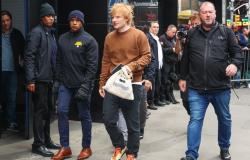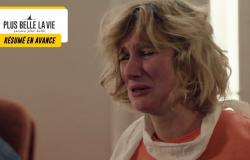White Blues
Claire Vesin’s novel, which takes us to the heart of the suburban public hospital, is worth all the expert reports.
Our literary reviews of the week
When we start reading fiction in the hospital world, we expect blood, drama, “NFS, chemistry, iono” screamed by sexy and heroic doctors, to stretchers colliding and interns colliding in the rest room. Let’s calm down: White is not the paper version of a TV series. Claire Vesin does not give in to clichés and easy emotion in these waiting rooms, centers of society where life and death hang in the balance every day. And yet, it’s just as captivating. A professional doctor, she details with finesse the fragility of the health system and hospital staff. What could have been a documentary turns into a pure novel thanks to the depth of its characters.
During the internship of a well-born intern, the fragile Aimée, we discover Jean-Claude, the old and brilliant surgeon tortured by his demons, Laetitia, the too young nurse on the front line at the emergency reception, or Fabrice, the solid Samu doctor who loses his confidence and his sex appeal when he takes off his uniform. And then there is this building. The Villedeuil hospital center, an imaginary suburb 4 kilometers from Paris. At the beginning of the 20th century, it was a majestic set of brick pavilions with its fountain and avenue of lime trees. The demographic pressure of the suburbs adorned it in the 1970s with towers covered in white tiles with names symbolizing modernity, such as “Cosmos”, where the action takes place. Today everything is falling into disrepair. Even the welcome light garland, installed for the holidays, only displays one letter in three. Barely installed and already defective.
pigeon droppings
In a chronically understaffed service, emergency physicians find themselves faced with “people with little medical follow-up, [qui] have pathologies that no longer exist in France and do not speak the language…”. And the team holds on, moves the stretchers to avoid the droppings of the pigeons who have taken up residence in the corridors, sticks together for a smoke break on the terrace, until the error which will call into question the vocation .
To the “endless race to reduce the pile of pending files”, the first-time novelist contrasts calm writing from which softness and melancholy emerge. And, without ever forcing the point, she succeeds in making this fiction about the hospital a social novel which questions our humanity. (Anne-Laure Walter)
© LTD / PASCAL ITO
Marker mark
In this fascinating essay, Raphaël LLorca warns against the privatization of the national novel by companies.
After reading Raphaël LLorca’s latest book, you will look at advertising spots differently. These not only sell a product or improve an image, they also convey a political message. This is what we learn, subtly mixing sociology, semiology and communication theory, this National novel of brands. Not content with having shaped individual identities, brands are now working to tell the national story, “this kind of macro-narrative, traditionally developed by political power and transmitted by the School, which aims to tell the country in a romanticized way – its identity, its values, what holds us together, what we believe in, etc. “. A story that politicians are no longer able to keep alive. Supporting studies, the author explains that it is the writers who succeed the best… and again. Brands are incredibly effective in reaching younger audiences. They know how to talk about the suburbs – like the advertising for the VTC company Heetch – or explain inflation and praise the solidarity of the French – the Intermarché dockworker. Not to mention the FDJ, which transforms its slogan “make the French win” into “and see France win”, and the luxury brands which design a France Emily in Parisfar from that of Renault.
Privatized novel
Even international brands tell the story of France more brilliantly than elected officials. Nike, sponsor of the French football team, which in its campaigns links players to their city of birth and highlights the pitches at the foot of the building blocks. France becomes the subject.
LLorca warns us: we must not let this novel be privatized in this way. Politicians must reappropriate it, even if it means borrowing skill and imagination from brands. The latter cannot ignore their responsibility: “In the future, it seems inconceivable that the future advertising campaigns of Renault, Burger King and other SNCF will not be accompanied by a battery of tests on the political nature of their reception: what image do they give of French society , its tensions, its representatives, its aspirations? » Indispensable, Raphaël LLorca’s work calls on the political world to respond to “need for France” of a society lacking stories, breath and hope. A.M.






